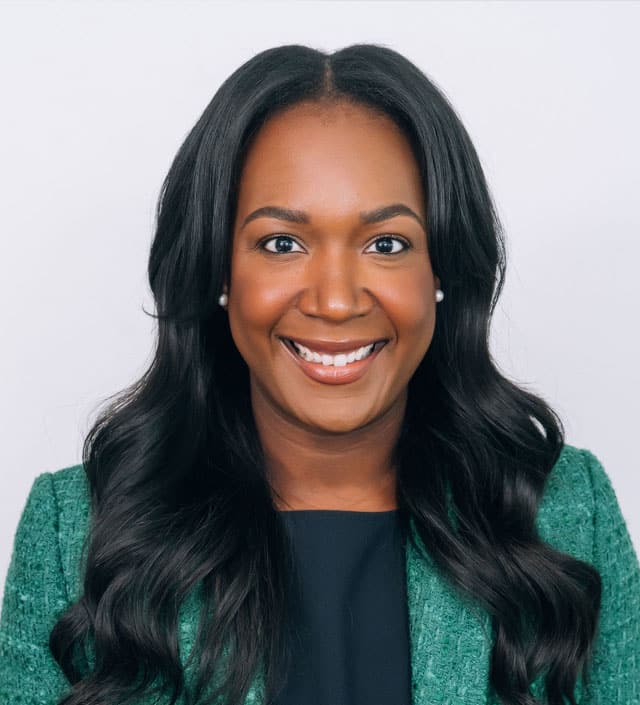
Over the past several weeks, I’ve had the opportunity to travel around the country and speak with end investors about wealth transfer and estate planning. These presentations always provide an interesting way for me to understand what “real people” are truly worried about and how financial advisors can help.
Perhaps not surprisingly, many people are initially reluctant to talk about wealth transfer. I’ve found that there are a few common reasons for this. First, wealth transfer at its core is a conversation about death. Most of us are loath to consider our demise as it can bring up all sorts of emotions, thoughts and regrets, not to mention simply reminding us of our age.
The second reason people shy away from the topic is the legal costs and complexities that go along with estate planning. For many clients, paying thousands of dollars for a bunch of paperwork doesn’t seem like a good value, especially since it may not be “needed” for several years.
Finally, people tend to avoid talking about estate planning because of the difficult financial and non-financial decisions associated with the transfer of wealth.
When I encounter these hesitations, I’ve found that the idea of legacy is a good way to get people over the hump. Each of us will leave some sort of legacy. The question for clients is, what is the legacy you want to leave for your family? Is it a plan that was created to ensure you were able to provide as much as possible for the next generation? Or is it memories of confusion, disorganization and possibly even resentment or intrafamily conflict?
Now that I have your attention …
Once people consider those potential outcomes and understand that conversations about wealth transfer and estate planning do apply to them, all sorts of questions arise. Following are three estate planning questions that families have asked me recently and how a trusted advisor might consider answering them.
‘Why do I need to waste my time doing that?’
When I engage in a conversation with a client about wealth transfer, I start with the idea of getting organized. I encourage them to make sure all their important financial, legal, and health-related documents are in one place.
This advice will inevitably cause someone to ask, “Why do I need to spend my time doing all that when I already know where all that stuff is?”
First, it’s important to make sure you have all the estate planning documents that will be needed to carry out your wishes in the event of your death – because many people do not. In fact, in a recent study by Janus Henderson Investors (JHI) on wealth transfer intentions, 54% of otherwise eligible respondents were excluded because they did not have a will or trust.
My second and more common retort is that this exercise and the resulting file isn’t for the person who creates it; it is for their family, who will need to know where these documents are upon the creator’s death to start the wealth transfer process.
This file could include any or all of the following types of documents:
- Contracts.
- Children.
- Credit and loans.
- Employment.
- Medical records.
- Estate planning.
- Insurance.
- Bank account information.
- Investments.
- Taxes.
- Vehicles.
Making sure clients take the time to do this is a simple and impactful way for advisors to better ensure success in the wealth transfer process. Keeping hard and electronic copies, along with having a second set of documents held in a safe deposit box or with a trusted advisor, is a best practice.
‘Who do we appoint to ensure our wishes are carried out?’
The answer to this common question is that most parents will appoint their children —if they have them — to handle the responsibilities. However, I spoke with a family who only has one child and he is autistic. In these cases — or for couples who don’t have children — a corporate or professional trustee may be the best option.
In most cases, parents will choose each of their children to serve as the executors of their estates. Why? To make sure no one’s feelings are hurt.
But the old of adage of having “too many cooks in the kitchen” is fitting in this case. Or consider the old-fashioned three-legged race: By choosing two (or more) executors, you are effectively tying their legs together and telling them to get to the finish line as quickly and smoothly as possible. Chances are, they’ll end up with scrapes and bruises, and probably won’t make it to the finish line very quickly or efficiently. Plus, consider all the arguing that may occur as one half of the team tells the other half what they’re doing wrong.
That’s why I recommend choosing one person to take on these responsibilities. Of course, some may find this challenging. To help make the decision easier, consider which individual best meets the following criteria:
- Assertiveness: Capable of handling disagreements and ensuring wishes are carried out.
- Proximity: Lives closer to the parent or is able to conduct face-to-face meetings more readily.
- Longevity: Will live long enough to fulfill their responsibilities.
Consistency is also important: Naming the same person as both your healthcare proxy and durable power of attorney can avoid potential conflicts.
And of course, be sure to inform your designated representative that you’ve chosen them and what is expected of them. It’s important to make sure an appointee can prepare themself mentally and emotionally for this responsibility. Plus, in the event that the person you’ve chosen doesn’t want this responsibility, you will give them the opportunity to say so.
Advisors should work through these considerations with clients to make sure they choose the best representative. Not only is this an important part of a wealth transfer plan, it also allows advisors to develop relationships with their clients’ children.
‘Should my children receive equal shares – no matter what?’
You may be surprised to learn that 84% of wealth transfers are bequests, and 88% of bequests are made to heirs (the remainder of go to charities). The question many families struggle with is how to divide assets among their children.
In many cases, bequests are equally split, but what should parents do in the case of a child who they may consider a “disappointment” (as one advisor described his own daughter)?
Many would think that this sort of strained relationship would lead to a child being disinherited. Based on research conducted by JHI, however, that is not always the case. Even though a parent and child may not get along, parents aren’t likely to completely cut them out of a will or trust.
Additional Reading: Is Your Client’s Living Trust Protecting Their Assets?
Advisors should ask clients how they wish to divide assets among their children, keeping in mind that strained relationships do not necessarily lead parents to disinherit their children or warrant the need for alternative beneficiaries.
Advisors should also ensure clients have clarity on four questions:
- Who is going to receive my wealth?
- When are they going to receive my wealth?
- What property will each heir receive?
- How will the transfer of wealth be made?
Once these questions are answered, it’s important to communicate the rationale for these decisions before death. By doing so, parents can set expectations with heirs and increase the probability of a smooth transfer of wealth.
The Big Picture
“What type of legacy do you want to leave?”
It seems like a simple question, but as we’ve seen there are several financial and non-financial questions families need to answer when planning their estates and determining how to transfer their assets. By considering these questions carefully, honestly and thoroughly, the legacy you leave can be one of providing your family with everything they need, rather than creating confusion, needless arguments, or unmet needs.
Benjamin S Rizzuto, CFP®, IMBA, CRPS®, is a wealth strategist in the Specialist Consulting Group at Janus Henderson Investors. This article is for educational purposes only.







